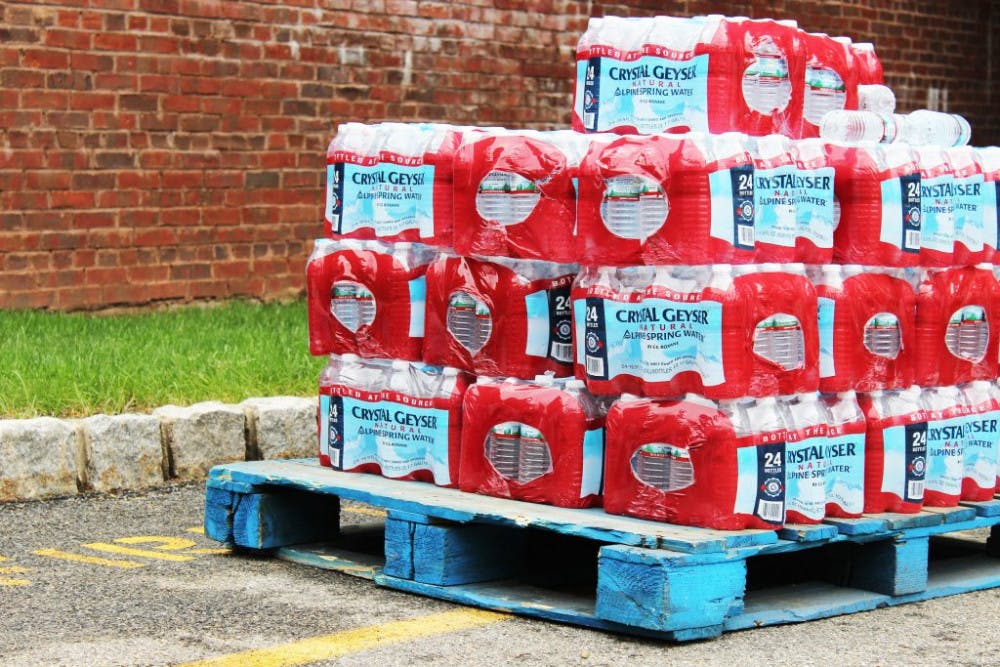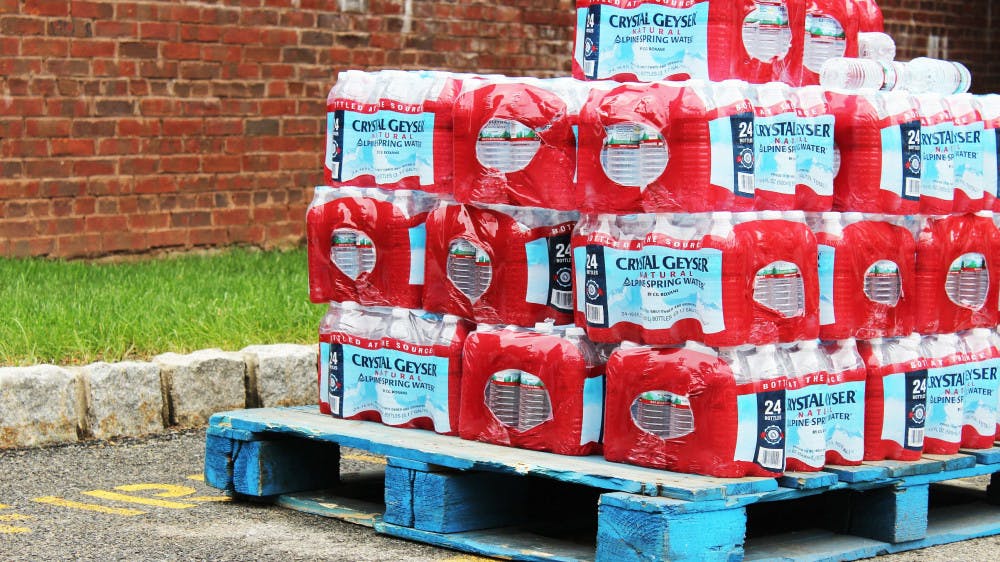The next Flint, Michigan is happening a lot closer to home for Seton Hall students.

According to CNN, Newark city officials don’t know when the city’s drinking water started to become contaminated with lead, but city officials told the network that it was “due to the releasing of lead from plumbing and lead service lines on private property between the street and approximately 15,000 homes.” The officials went on to say that the Pequannock water treatment plant’s corrosion control system “became less effective at reducing the corrosion of lead pipes and resulted in rising lead levels in some homes with lead service lines,” throughout the city of Newark.
The Newark Board of Education began testing water samples in the city’s schools in 2010, and from then through 2016, between 11.7% and 15.27% of the samples tested showed lead levels of above the 15 parts per billion (ppb) federal actionable lead level, according to CNN. The Environmental Protection Agency’s (EPA) “lead and copper rule” states that something must be done to address lead levels in a given area if lead concentrations exceed 15 ppb in more than 10% of sampled taps. After the initial test in 2010, the Board of Education did in fact turn off or remediated all fountains with elevated lead levels and offered free blood lead level tests to families who desired one.
Throughout 2017 and ‘18, Newark continued testing the water and determined lead levels were staying fairly consistent through the city. After a series of letters to the city from the Natural Resources Defense Council, a non-profit environmental advocacy group and even a letter to President Trump from Newark mayor Ras Baraka asking for federal assistance in the matter, Newark violated the federal action level for lead in drinking water for the fifth consecutive monitoring period, according to CNN.
The city is currently investigating exactly how and when this began, but right now all they can say is that in order to permanently solve this, the city will need to replace service lines. Until that project begins, the city is implementing short-term solutions.
In early August, the city of Newark and the state of New Jersey began providing bottled water to residents of Newark whose drinking water contains lead. Seton Hall students are also doing their part to help their affected neighbors.
On Sept. 9 and 10, the Division of Volunteer Efforts (DOVE) at Seton Hall handed out bottled water on campus to those affected by this crisis.
Michelle Peterson, the director of DOVE, said that the program “has the ability and responsibility to respond to many needs in our local community through direct service, fundraising, and being present during people’s time of need.”
“This is no different,” Peterson said, “We are lucky that our University embraces the call to serve in whatever way it can.”
In addition to handing out water for two days on campus, the additional water is being donated to four Newark distribution centers. A donation page has also been created for those who wish to make monetary donations.
DOVE isn’t the only organization on campus that is striving to address this crisis. The Alpha Nu Alpha Chapter of Phi Beta Sigma fraternity has been donating water to the St. Lucy’s Church with the assistance of the Delta Sigma Theta Sorority Upsilon Phi Chapter at Seton Hall.
Kylem Spence, a member of Phi Beta Sigma, said that “It’s kind of hard to describe the feeling that you get when you hear that children can’t even bathe in their own home.”
Spence added that he feels for those in Flint, but that since Newark is right next to campus, “this hits close to home.”
Lianne Joseph, a member of Delta Sigma Theta said that though she’s proud to help those affected by this issue, she thinks that “we’re neglecting to reach out to the officials of Newark and directly hold them accountable for letting something like this happen.”
“We should be writing letters to New Jersey’s government,” Joseph said.
Joseph said that Seton Hall’s administration should be drawing more attention to this water crisis.
“I personally have a lot of friends who live in Newark and they’re really concerned,” she said. “With all the resources Seton Hall has, it has a responsibility to prioritize students in Newark because a lot of students moved to Newark for a Seton Hall education.”
Shawn Brelvi, a senior mathematics major said that Seton Hall should continue to hold water drives as long as this issue persists.
“Everyone should have access to clean water and it’s a shame that this problem hasn’t been addressed sooner,” he said. “However, I’m glad that $120 million has been appropriated to solve the problem.”
Isabel Soisson can be reached at isabel.soisson@student.shu.edu. Find her on Twitter @IsabelSoisson





